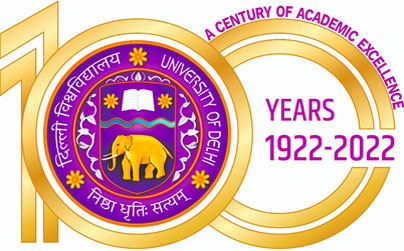The Science of Happiness
Credits
Lecture
Tutorial
Practical/Practice
Eligibility criteria
Pre-requisite of the course
- To help students understand the concepts of happiness scientifically and provide them with a basic training on how to improve the quality of their life as well as those of others.
- To adopt the science and practice of happiness by focusing on strengths that enhance positive emotions and positive relationships, thus preparing them for a ladder for excellence.
- To foster well-being by developing insights about oneself and awareness about others.
- To attempt to use ‘happiness’ as a driver of innovation & as a social quality for community growth and connection with each other.
- Students will be able to transform themselves through self-discovery, realizing their innate potentials, and finding their purpose in life.
- The course shall drive students to become positive human beings by assisting them in understanding well-being through a scientific perspective.
- It will result in students flourishing by helping them understand the suffering of life and explore ways to effectively overcome them.
- It shall encourage students to build a genuine connection and relationship with others, resulting in sustained strength and happiness.
UNIT- I Framing Happiness (4 hours)
- Introducing the different perspectives of happiness
- Happiness myths and misconceptions
- Why happiness-Introductory Issues
- Managing Monkey brain and negative emotions
UNIT- II Neuraoscience of Happiness (3 hours)
- Neuroscience and happiness
- Brain-behaviour relationship
- Measuring happiness
UNIT- III Happiness in everyday life (4 hours)
- Importance of empathy and gratitude
- Toxic Positivity & Shades of Optimism
- Relationships & Well-being
- Flow and Creativity
UNIT - IV Resilience and Happiness (4 hours)
- Coping with negative emotions
- Nurturing skills, values, and mindset for Resilience
- Critical issues behind happiness
Along with conceptual and scientific explanation, this course will also introduce practices and encourage experimentation in how to live a happier life. Research shows that increasing our own well-being takes daily, intentional effort over long periods of time. Each week, students will be assigned a set of “unlearning” and ‘relearning’ practices. These practices aim at unlearning negative mindset and will help to boost overall wellbeing. During the course, the students will also be assigned mini projects as below along with the experiments to explore happiness in daily living.
- Mindlab experimentation- Demonstration of brain waves through EEG using any intervention and detecting the stress levels through biofeedback instruments. This will enable students to empirically comprehend the impact of positive or negative affect on one’s physiological function.
- Signature Strengths and Measuring Happiness- How to measure happiness and determine your signature strengths using validated psychological instruments.
- Savoring & Gratitude Journal-The act of stepping outside of an experience to review and appreciate it lengthens the positive emotions. Gratitude is a positive emotional state in which one recognizes and appreciates what one has received in life. Research shows that taking time to experience gratitude can make you happier and even healthier. Students will be encouraged to create a journal by picking one experience to truly savor and are grateful for each day. Additionally, students will be asked to perform micro acts of kindness, connect with someone they care about beyond what they would normally do.
- Exercise & Sleep- Research shows that a few minutes a day of exercise and proper sleep can improve mood more than we often expect. Students will be asked to keep a track of both their exercise routine and sleep viz their daily moods.
- Lipton, Bruce H. The biology of belief 10th anniversary edition: Unleashing the power of consciousness. matter & miracles. Hay House, Inc
- Handel, D. (2012). The Science of Happiness: How our Brains Make Us Happy and What We can Do to Get
- Happier by S. Klein: (2006(. Cambridge, MA: Da Capo Press, 289 pp. ISBN: 9781921215148
- Lyubomirsky, S. (2008). The how of happiness: A scientific approach to getting the life you want Penguin
Suggested Readings
- A compass towards just and harmonious Scoeiety-Centre for Bhutan Studies (can be downloaded online)
- Laugh you way to happiness-Lesley Lyle
- Seven Effective Habits-Stefan F Covey
- Stumbling on Happiness-Daniel Gilbert
- Flourish-Martin P. Seligman
Examination scheme and mode: Subject to directions from the Examination Branch/University of Delhi from time to time


